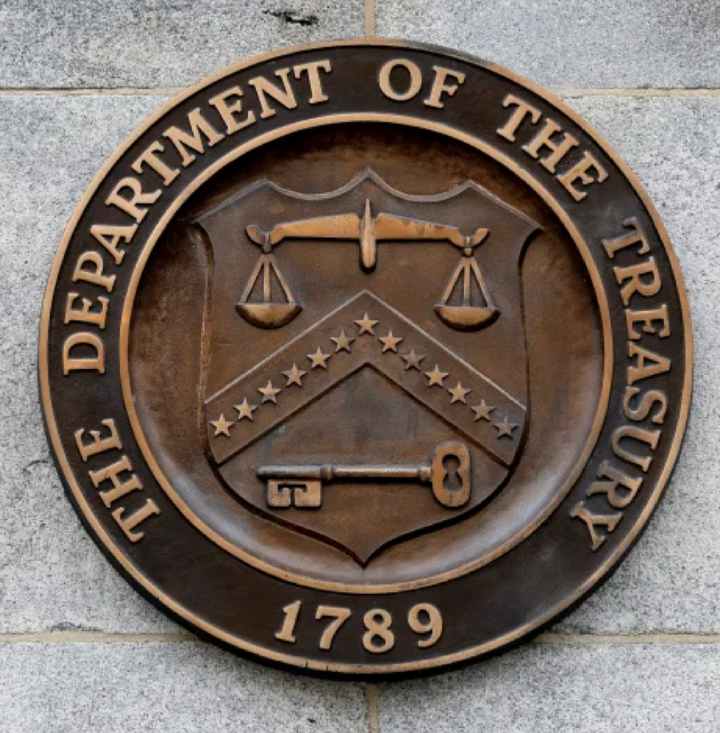In a significant move to counter cyberattacks targeting critical U.S. infrastructure, the Treasury Department has imposed sanctions on two Chinese hacking groups: Salt Typhoon and Silk Typhoon. This decisive action highlights the growing concern over Chinese state-sponsored cyber espionage and its potential to disrupt essential services and steal sensitive data.
Salt Typhoon: Behind the Largest Telecom Breach in U.S. History
Salt Typhoon gained notoriety for orchestrating the most extensive telecommunications hack ever witnessed in the United States. The group infiltrated at least nine U.S. telecom and internet service providers, including industry giants like AT&T and Verizon. This unprecedented breach provided Salt Typhoon with access to the private communications of high-ranking U.S. government officials and prominent political figures.
The scope of the attack extended beyond eavesdropping on sensitive conversations. Salt Typhoon also targeted systems employed by law enforcement agencies for court-authorized data collection. This potentially compromised sensitive information, such as the identities of Chinese individuals under U.S. surveillance.
The Treasury Department's Office of Foreign Assets Control (OFAC) designated Sichuan Juxinhe Network Technology, a China-based cybersecurity company, as having direct ties to Salt Typhoon. This designation freezes any assets the company may hold within U.S. jurisdiction and prohibits American entities from engaging in transactions with Sichuan Juxinhe.
Silk Typhoon Breaches the U.S. Treasury
While Salt Typhoon focused on the telecommunications sector, Silk Typhoon set its sights on a different target: the U.S. Treasury itself. In a late December cyberattack, hackers affiliated with Silk Typhoon exploited a stolen private key from BeyondTrust, a cybersecurity company providing identity access management solutions to large organizations and government departments. This unauthorized access enabled the attackers to remotely infiltrate certain Treasury employee workstations.
The Treasury Department has attributed the Silk Typhoon attack to another China state-backed group, highlighting a pattern of coordinated cyberattacks targeting U.S. interests. The stolen credentials likely originated from a prior supply chain attack, compromising BeyondTrust's systems and enabling subsequent exploitation by Silk Typhoon.
Treasury Department Responds with Sanctions
The Treasury Department's sanctions deliver a clear message: cyberattacks targeting U.S. critical infrastructure and government institutions will not be tolerated. By designating Sichuan Juxinhe and Yin Kecheng, a Shanghai-based cyber actor linked to the Treasury breach, OFAC restricts their access to U.S. financial resources and disrupts their ability to conduct future operations.
Adewale O. Adeyemo, a U.S. Treasury official, emphasized the department's unwavering commitment to holding malicious cyber actors accountable. He stressed that the sanctions target not only those responsible for the Treasury breach but also those who have inflicted damage on American companies and citizens.
Earlier Sanctions Against China-Backed Hacking Groups
The sanctions against Salt Typhoon and Silk Typhoon come on the heels of similar actions taken against another China-based cybersecurity company, Integrity Technology Group, in early January 2025. The Treasury Department accused Integrity Technology Group of collaborating with a government-backed hacking group known as Flax Typhoon, which had been implicated in multiple cyber intrusions targeting U.S. critical infrastructure.
These sanctions signal a more aggressive U.S. posture in combating Chinese cyberattacks. The Treasury Department's willingness to target not only individual actors but also companies associated with hacking groups demonstrates a comprehensive strategy to disrupt China's cyberespionage operations.
The Importance of Cybersecurity
The recent wave of cyberattacks underscores the critical importance of robust cybersecurity measures. Telecom providers, government agencies, and critical infrastructure operators must prioritize cybersecurity investments to safeguard their networks and data from sophisticated hacking groups.
Here are some essential cybersecurity practices that can help mitigate the risk of cyberattacks:
- Regularly update software and firmware. Software vulnerabilities are a frequent entry point for attackers. Implementing timely updates helps patch these vulnerabilities and bolster your defenses.
- Employ strong passwords and multi-factor authentication. Complex passwords and multi-factor authentication make it significantly more challenging for unauthorized users to gain access to your systems.
- Educate employees about cybersecurity best practices. Employees should be aware of common phishing tactics and social engineering techniques used by attackers. Regular cybersecurity training can equip employees with the knowledge to identify and avoid these threats.
- Segment your networks. Network segmentation limits the lateral movement of attackers within your network, potentially containing the impact of a breach.


Post a Comment